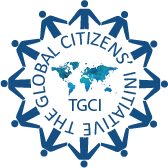This month, we share two opinion pieces on:
- A new global power structure formed by the United States, China, and India.
- The role of religious communities in advocating for environmental justice and sustainable practices.
————————————————————————————————————–
The United States, China, and India will likely form a new global power structure, the G-3, due to their population size, economic clout, military strength, and shared responsibility in addressing major global challenges such as climate change and economic crises. Despite their competitive and often tense relations, the three nations will have to cooperate to avert future calamities, write Michael T. Klare in Goodbye to the American Century.
Michael T. Klare, a TomDispatch regular, is the five-college professor emeritus of peace and world security studies at Hampshire College and a senior visiting fellow at the Arms Control Association. He is the author of 15 books and a founder of the Committee for a Sane U.S.-China Policy.
————————————————————————————————————–
Believing in an ecological God means recognizing that God created and loves the entire world, including all living beings. This belief has the potential to inspire care for the Earth and its creatures, leading to a shift in our relationship with nature from dominance to kinship, argues Elizabeth A. Johnson. Understanding our interconnectedness with the natural world and embracing our role as part of a beloved community of creation can motivate us to protect and nurture the planet.
Elizabeth A. Johnson, C.S.J., is a distinguished professor of theology emerita at Fordham University and the author of Consider Jesus, She Who Is, Quest for the Living God and Ask the Beasts.

